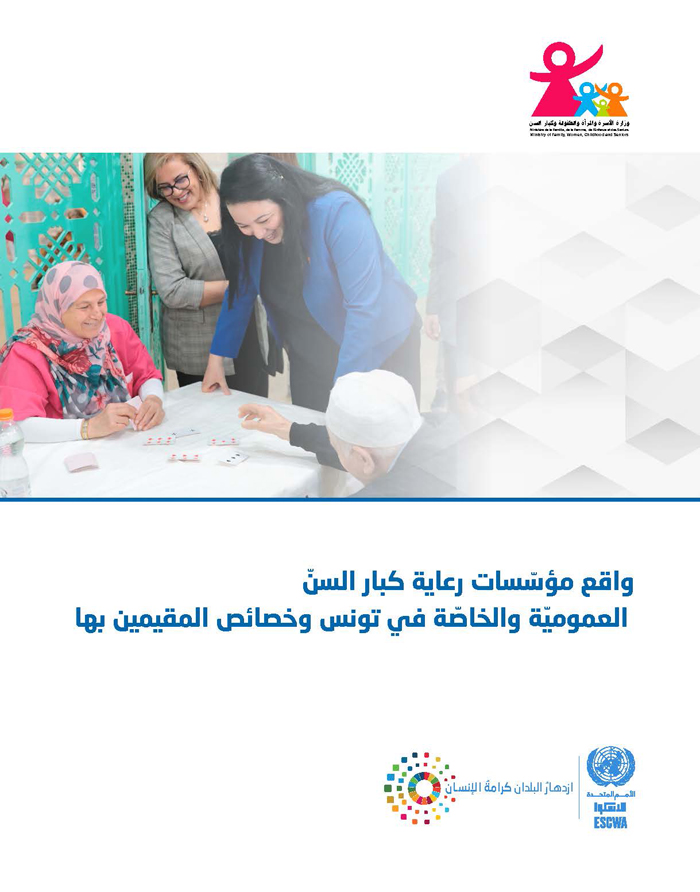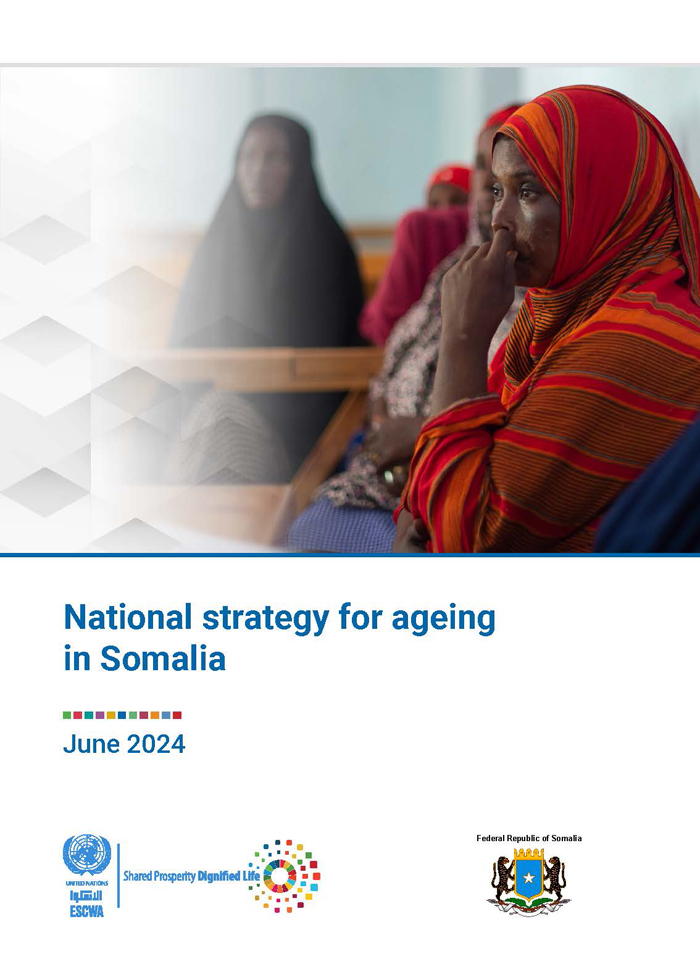
ESCWA Publication: E/ESCWA/CL2.GPID/2023/TC.6
Country: Arab region, Republic of Tunisia
Publication Type: Reports & studies
Cluster: Gender Justice, Population and Inclusive Development
Focus Area: Population dynamics & migration
Initiatives: Older persons
SDGs: Goal 3: Good Health and Well-Being
Keywords: Care of ageing persons, Health conditions, Institutionalized persons, Living conditions, Old age benefits, Private sector, Public institutions, Social conditions, Statistical data, Tunisia, Welfare and social services
The situation of public and private care institutions for older persons in Tunisia and the characteristics of their residents
July 2024
The present study addresses the situation of public and private care institutions for older persons in Tunisia, and the social, economic, health and demographic profile of their residents. It was developed using mixed quantitative and qualitative research methods, allowing to identify the profile and specific needs of older persons residing in care institutions and the drivers for staying there. The study revealed a general sense of satisfaction among older persons residing in care institutions with the basic services provided to them, such as catering, hygiene and health-care services, noting lower rates of satisfaction with recreational and social engagement services.
In addition, the study assessed the existing relations among all actors concerned with care institutions in their various psychological, social and professional dimensions. It also explored problems of communication between a number of older persons in care institutions and their families. The study found that the common aspect between the various cases of older persons was the absence of a stable and balanced family structure in their lives that would protect them from loneliness and isolation. It concluded with a number of priorities and recommendations that would help to strengthen the management of care institutions for older persons and develop care programmes commensurate with their residents’ needs.
Related content
Population dynamics & migration
,
The present study addresses the situation of public and private care institutions for older persons in Tunisia, and the social, economic, health and demographic profile of their residents. It was developed using mixed quantitative and qualitative research methods, allowing to identify the profile and specific needs of older persons residing in care institutions and the drivers for staying there. The study revealed a general sense of satisfaction among older persons residing in care institutions with the basic services provided to them, such as catering, hygiene and health-care services, noting lower rates of satisfaction with recreational and social engagement services.
In addition, the study assessed the existing relations among all actors concerned with care institutions in their various psychological, social and professional dimensions. It also explored problems of communication between a number of older persons in care institutions and their families. The study found that the common aspect between the various cases of older persons was the absence of a stable and balanced family structure in their lives that would protect them from loneliness and isolation. It concluded with a number of priorities and recommendations that would help to strengthen the management of care institutions for older persons and develop care programmes commensurate with their residents’ needs.



